Japan is renowned for its focus on health, as it’s rare to encounter an obese Japanese person. Their diet is low in carbohydrates, which contributes to a 15% lower chance of mortality, as explained by researchers from the National Center for Global Health and Medicine in Tokyo. The Japanese have several factors in their favor, such as consuming ample fresh vegetables, minimizing fat intake, and showing a preference for seafood and fish over red meat.
Moreover, the Japanese embrace an active lifestyle, walking an average of 7,000 steps per day and opting for bicycles as a means of transportation. These habits are excellent exercises that help prevent weight gain. Overall, the Japanese serve as an inspiring example to follow when it comes to health and wellness.
10. Do not eat until you fill up
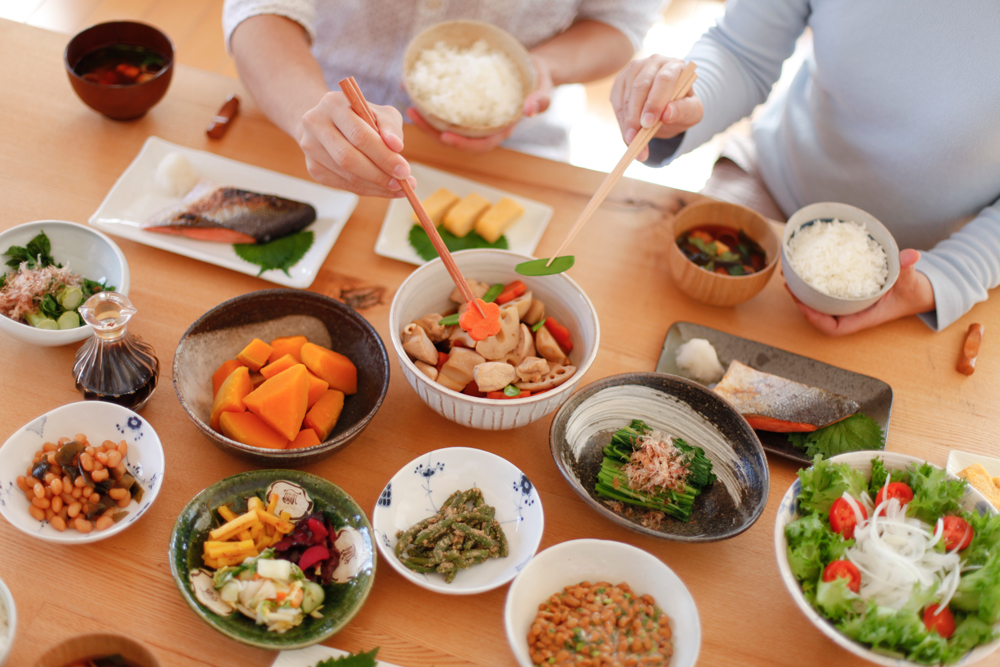
Some Japanese people follow the concept of “Hara hachi bu,” which translates to “belly at 80%” in Spanish, as reported by the newspaper La Vanguardia. This concept suggests that one should not eat until completely full. According to the Japanese, leaving a 20% void in the stomach aids in quicker digestion. Marcos Cartagena, CEO and co-founder of the travel agency Discovering Japan, who has studied the culture and customs of the country for over 16 years, explains that overeating can strain the organs, leading to issues such as diabetes, obesity, and liver problems, as believed by the Japanese.
9. Your food
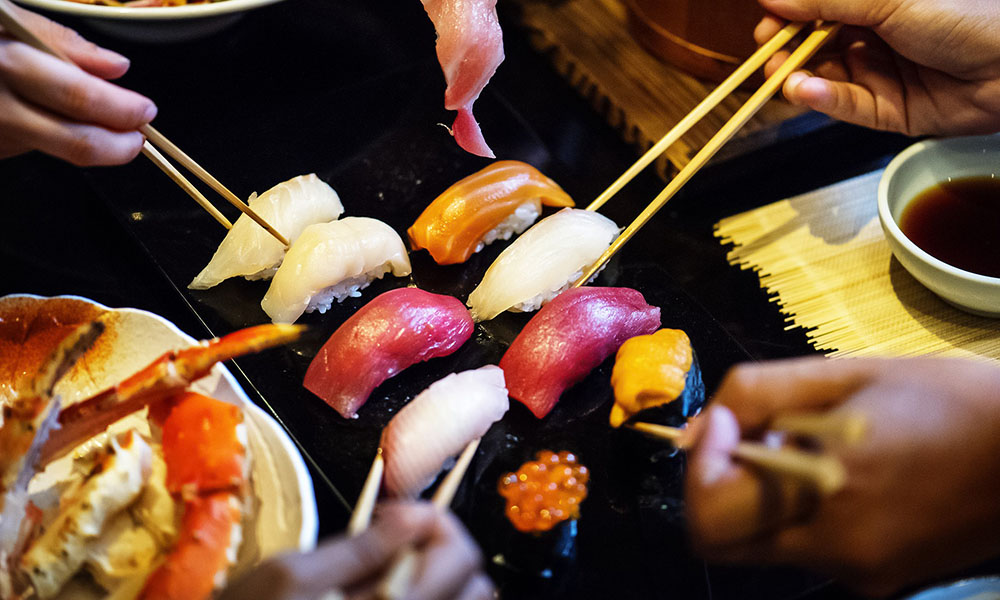
The key to the Japanese diet goes beyond what you eat; it also involves the cooking methods. Most of their foods are prepared on the plancha, cooked, or steamed. These techniques help preserve the highest amount of vitamins and minerals.
Despite having a diet rich in carbohydrates, the Japanese have a very low consumption of fats. Their dishes are abundant in grains, fish, and meat, while they seldom indulge in dairy products or fruits, making their diet naturally low in sugars. Additionally, they avoid eating on the street, opting instead for fresh home-cooked meals, resisting the temptation of purchasing less nutritious fast food.
8. Without merit
The Japanese place a strong emphasis on following rules, and even from a young age, taking any sugary drink to school is forbidden; they primarily consume water. If for any reason they miss breakfast, they patiently wait until lunchtime to eat. Moreover, caramels, cookies, or any other food that may spoil their breakfast are not allowed.
 This discipline allows them to maintain three balanced meals a day, resisting the temptation of eating snacks between meals. While some exceptions are permitted, these instances involve very small and healthy portion sizes.
This discipline allows them to maintain three balanced meals a day, resisting the temptation of eating snacks between meals. While some exceptions are permitted, these instances involve very small and healthy portion sizes.
7.Healthy fast food
Japanese culture is renowned for prioritizing work, but despite their long workdays, they make sure to allocate time for rest and maintain healthy eating habits. When they lack time to cook at home, they turn to fast food options.
However, their fast food choices are different from what we typically associate with such food. Japanese fast food dishes are not filled with refined, fatty, or fried foods. Instead, they focus on fresh and natural ingredients. Local chains offer healthier alternatives that are a great option to avoid consuming excess calories. While popular global fast food chains like McDonald’s, Burger King, KFC, or Domino’s Pizza exist in Japan, the majority of Japanese people do not consume these foods regularly.

6. Respect the times
Japanese cuisine is deeply respected and holds a strong sense of tradition. Regardless of age, everyone follows the same mealtime hours. Typically, breakfast is enjoyed between 8 am and 9 am, lunch is around 12 pm and 1 pm, and dinner is served between 6 pm and 8 pm. These specific meal hours allow for a well-planned eating schedule.
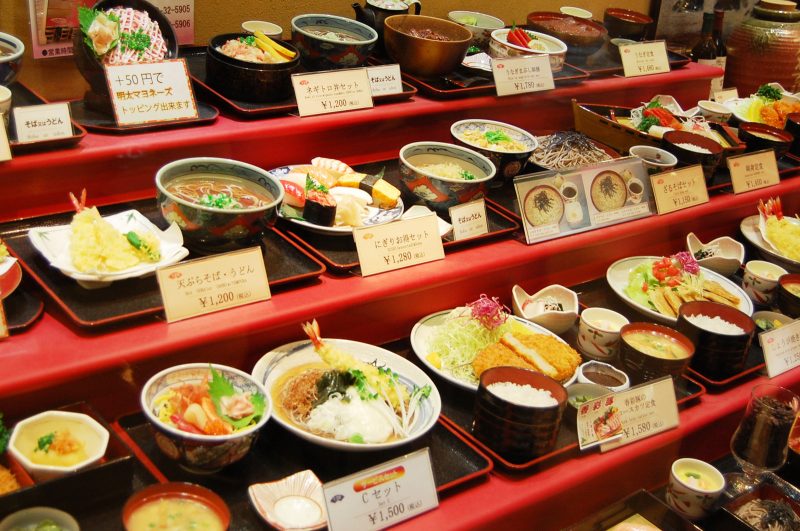
The Japanese meticulously plan their meals, ensuring they are ready at the exact time since they may not have much time to eat at other hours. This awareness stems from their concern about the potential health repercussions of irregular eating habits.
5. Long walkways
Japanese children are highly admired worldwide for their discipline, perseverance, and ability to maintain control in any situation. From a very young age, physical activity is instilled in them, and they are accustomed to intense routines and long walks, which contributes significantly to their ability to maintain a healthy weight.

It’s common to see Japanese children walking or cycling to school and back home, and these practices continue into adulthood. Engaging in such activities allows them to burn calories naturally, develop healthy lungs, keep their hearts in good condition, and even accelerate their metabolism. This emphasis on physical activity from an early age sets the foundation for a healthy and active lifestyle throughout their lives.
4. Small portions
Another advantage for the Japanese is their practice of consuming small portions. It is a common sight to see each family member being served different dishes at mealtime, with up to 5 different foods served on small plates. This approach is designed to ensure they obtain all the necessary macro and micro nutrients for maintaining good health.
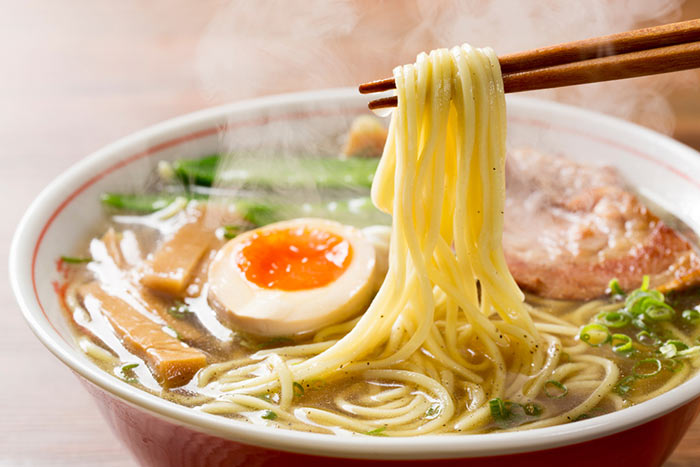
Furthermore, the majority of Japanese people eat with chopsticks, which leads them to eat more slowly compared to the rest of the world. Chewing each food slowly aids in better digestion, and it allows the brain to receive signals of satiety more effectively. Marta Vallejo, a specialist in Nutrition and Dietetics at Clínica Opción Médica, explained this in an interview for the magazine ¡Hola!
3. It’s green
Green tea is renowned for its amazing properties and has been used in traditional medicine for thousands of years, as stated by the Healthline website. Drinking green tea every day offers various benefits, including reducing inflammation, lowering the risk of heart disease, and promoting better mental health, which contributes to the Japanese having a 15% lower chance of mortality.
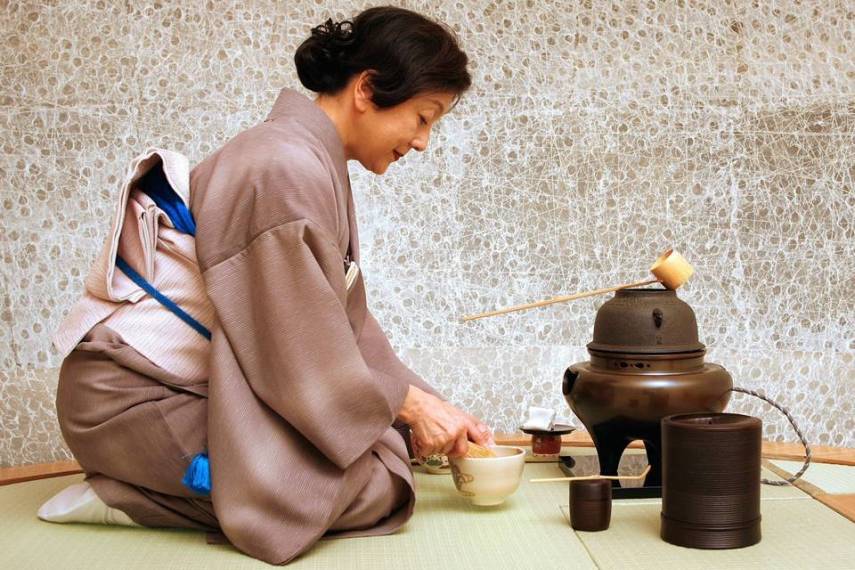
Moreover, green tea helps in preventing diabetes and regulating blood sugar levels. For the Japanese, it serves as a natural antioxidant that steers them away from soft drinks and other harmful beverages. In essence, green tea is not only beneficial for slimming down but also for accelerating metabolism, making it an essential part of their health-conscious lifestyle.
2.No distractions
Indeed, the majority of people use their fast-paced lives as an excuse for poor eating habits. We often prioritize efficiency and multitasking, leading us to work and eat in front of the television without realizing the detrimental consequences to our health. Studies show that such practices can result in consuming more grease and sugar since our attention is not fully focused on the food.
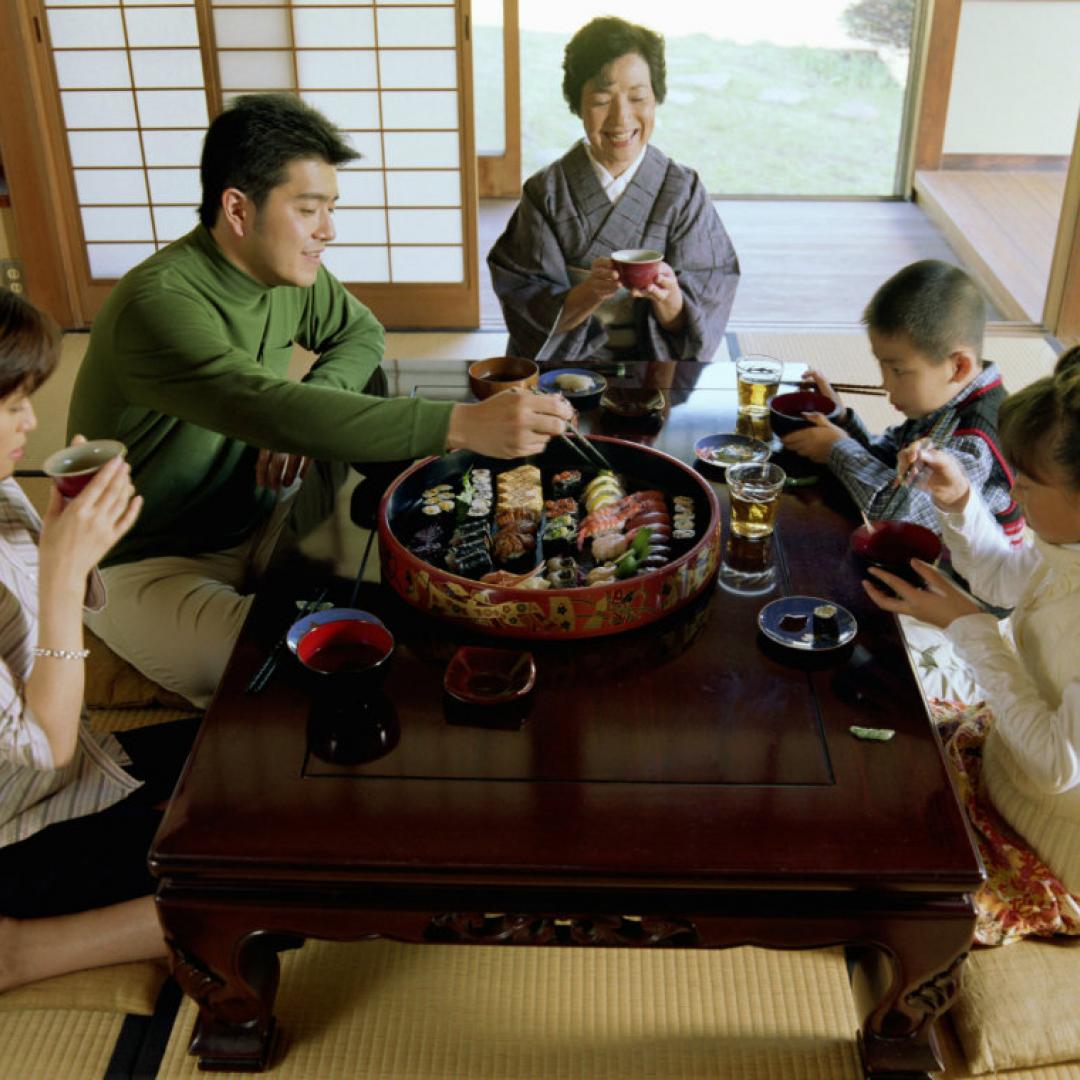
In contrast, for the Japanese, mealtime is treated as a sacred moment. They deeply respect and enjoy the experience, taking the time to savor the flavors and textures of their food. Without any distractions, they become more aware and appreciative of their meals. This mindful approach to eating allows them to develop a healthier relationship with food and maintain a balanced diet.
1.Balanced breakfast
We are all aware of the importance of breakfast in the human diet, but unfortunately, few of us actually consume it in a balanced manner. However, for the Japanese, breakfast is a feast that pays tribute to the food triangle, consisting of essential elements like rice, seaweed, tea, cucumber, and fish, among other nutritious foods. They do not consider breads, jams, or cereals as viable options for their morning meal.

Japan holds the record for the highest life expectancy in the world, and it is also the place where a significant number of people live to be 100 years old. A major contributing factor to this longevity is their good eating habits. Without a doubt, we can adopt some of these practices to improve our own health and well-being.
Now that you know the secret of the Japanese in maintaining their ideal weight and leading healthier lives, consider incorporating some of these habits into your daily routine. Making mindful and nutritious choices can significantly contribute to a healthier and more fulfilling life.
